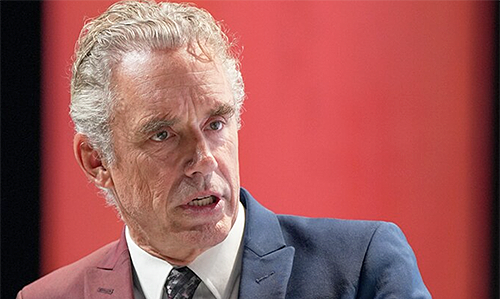
by PAUL COLLITS – WE ARE in a new world. Anything we used to take for granted about politics no longer applies.
The American magazine, First Things, under the leadership of RR Reno, is not just “America’s most influential journal of religion and public life”, but is, these days, indispensable. On many fronts.
- Like it or not, the West is now post liberal.
- We have been given a concise picture of our miserable world.
- Many good people are working on bits of “the problem” – but don’t fully understand the whole picture.
At a time of unprecedented – for once, the word isn’t an easy cliché – evil and craziness, First Things is even more important.
The coming print edition (November 2024) contains an essay by Nathan Pinkoski called “The Post Cold War Apotheosis of Liberal Managerialism”. (Translation: apotheosis = deification; liberal managerialism = the West’s current ideology of technocracy and the rule of experts.)
ERODED
The thesis in a nutshell is: “Twentieth-century civilisation has collapsed. It rested on an essential tenet of liberalism: the State-society, public-private distinction. The State-society distinction reached its apogee in the mid-twentieth century, when the triumph and challenges of the postwar moment clarified the importance of defending social freedom from State power, while ensuring that the public realm was not taken over by private interests. Over the last few decades, this distinction has been eroded and finally abandoned altogether. Like it or not, the West is now post liberal.
Here we have a concise picture of our miserable world. There is much more to the story than this, of course.
Does understanding the process and outcome help us in any way to fight back?
We have to believe it does, whatever our confidence or lack of it in those who, we might have assumed, might lead the fightback.
Perhaps, equally importantly, the outstanding US essayist NS Lyons has commented on Pinkoski’s paper and article. And added significantly to the analysis.
First point: “Overall, Pinkoski’s essay powerfully demonstrates just how dramatically different Western ‘liberal-democratic’ countries are from a mere three decades ago.”
Lyons states: “Nathan Pinkoski has produced a bold, detailed and compelling case study illuminating what is perhaps the signal phenomenon of our era: the abandonment of any meaningful distinction between State and society, between public and private power and between public and private spheres writ large. In recent decades we have experienced the rapid rise of Western regimes that transcend any such distinction, and which thus — to cut to the point — grow increasingly totalitarian in aspect.
“A year or so ago I wrote a long essay titled ‘The China Convergence’, which I bring up here because I think its main themes are quite relevant. Namely, that the same specific form of oligarchic technocratic governance, described by James Burnham and others as ‘managerialism’, has today successfully taken over almost the whole developed world, West and East alike.
“Managerialism is, in short, the instantiated belief that everything can and should be deliberately engineered and managed from the top down, and that this necessitates an expert class of professional managers whose business it is to do so.
“Rooted in the techniques of bureaucratic organisation and ‘scientific management’ that sprang from the revolution of mass and scale brought on by the Industrial Revolution, managerialism took off with the early progressive movements and flourished following the bureaucratic explosions produced by the two world wars.
GENIUS
“Now, the evolutionary genius, so to speak, of managerialism is that it functions constantly to justify its own perpetual expansion. The larger and more complex any organisation or system grows, the exponentially more managers seem needed to manage that complexity and the inefficiencies it generates; managers therefore have a strong incentive to ensure that their organisation continues to grow larger and more complex, resulting in greater relative power and resources for the managers as a group within the system; more growth means more managers must be hired, who then push for more expansion by rationalising a need for their cancerous bureaucratic apparatus to take over an ever-larger range of functions; as more and more territory is surrendered to bureaucratic management, more managers must be trained and educated, which requires more managers – and on and on. I call this expansionary dialectic the managerial doom loop.
“To begin connecting this back to Pinkoski’s study, these managerial interests have over time in the West congealed ideologically into what we can describe as a managerial consensus: a unifying system of moral and philosophical beliefs that just so happen to not only rationalise the interests of managerial elites, but also to elevate them to a position of moral superiority, serving to legitimize their right to rule.
“This ideology consists of a number of core tenets, including technocratic scientism, utopian progressivism, a devotion to the ‘liberation’ of individuals from all former norms and constraints (whether of nature or tradition), and an incentive to flatten any particularity of people, nation, or culture so as to produce more ‘free’ individuals — in other words more predictable and easily interchangeable ‘undifferentiated human material’…”
This is outstanding analysis. Next level. There is much more, too much for inclusion here.
Between them, Lyons and Pinkoski have proposed a grim theory of the decline of our politics and the global attack on our freedom and rights, since the 1990s.
They are hovering above the distracting matters of everyday politics and the fights that can consume us all.
TYRANNICAL
For anyone remotely concerned with our tyrannical moment, with which we are all living in real time, unpacking this must be one of the “first things”.
Many good people are working on bits of “the problem”.
We have heroes pushing back against medical tyranny. We have establishment conservatives, at their various conferences, doing their speeches against the woes of the world, wearing conservative hats, seeing much but often missing the big picture. Their perspectives are earnest but limited.
There are anti-war types, rightly concerned about the coming world war, expressing their horror. There are American MAGAs cheering on Trump against dark Democrat cheats and spivs and crooks, fearing (correctly) the likely outcomes of a Kamala victory.
There are people focusing on the deep State and the imminent, complete victory of the fact checker class.
There are the Douglas Murray types who are fighting two battles, one against Muslim terrorists and another against those seeking to crush the West. They often overlap.
There are those who see in the European Union the prototype for the new world order. There are the theorists of the deep State.
ACTIVISTS
These are all worthy activists, working for the good guys, and on the right side of history. But they are all members of the B team.
These guys, Lyons and Pinkoski, however, have eyeballs on the main target. We would do well to see their claims and to go with them.
Inevitably, and boringly for readers here, we are drawn back to US political theorist James Burnham and his epic tome, The Managerial Revolution.
This is Lyons’ pitch. He sees the coming of the managerial class as pervasive across all ideologies and regimes. And ruling all their behaviours. The Chinese, the Europeans, the American deep technocratic State. The Big Tech and Big Pharma juntas. The new world order globalists. (Perhaps not the Islamists).
It behooves all the various pundits and speech givers at the wall-to-wall conferences to pay some attention to first things, and to the core developments that explain not just the bits, but the whole picture.
And to better align their individual efforts with the main game.PC













I assume that the Pinkoski essay to which you refer is the same as appears in its online manifestation as “Actually Existing Post-Liberalism”. If it holds up under analysis, this essay will prove to be a pivotal moment. Pinkoski points out what a Marxian analyst might call the economic substructure of post-liberalism.
—
“The first sign that we don’t live in the old postwar liberal international order is that the economic system underwriting it has long ceased to exist. In August 1971, Richard Nixon decided to suspend the convertibility of the dollar to gold. The change shattered the economic system established at Bretton Woods during the final stages of World War II. Nixon’s decision initially shocked the global financial system, but it laid the foundation for American financial ascendancy. The dollar replaced gold as the backstop of global finance. Thus, as the United States entered the first stages of de-industrialization in the 1980s, American economic and political power did not decline, as experts anticipated. Nor did anyone really comprehend the tremendous political advantages implicit in the transition from a gold standard to a global economy based on America’s fiat currency. The American political classes were, at least at that time, only dimly aware of their own capabilities. They were focused on other objectives.”
—
This, it seems to me, is vital to his analysis.
A reasonable analysis, albeit a rehashing of the work of others. But what’s your beef? If you think you understand The System, it shouldn’t be too hard to game it. Doing so requires a high degree of cynicism and self-confidence, together with a complete lack of moral inhibition. The System as it exists in Australia has created a number of perpetual cash dispensing machines, the NDIS being an excellent example. Rorting the NDIS is a major entrepreneurial activity, but not of course among the morally superior. Coming soon, the ALP’s Universal Childcare bounty. As yet an unfunded promise, it would be a mistake to disclose the likely tax initiative that is certain to be announced before the GE in order to fund the UC. Suffice to say, the UC promises to make millionaires of huge numbers of suburban entrepreneurs who are smart enough to game The System. It’s all a question of monetising the promises of politicians, most of whom lack any commercial experience and don’t understand the limits to their writ.